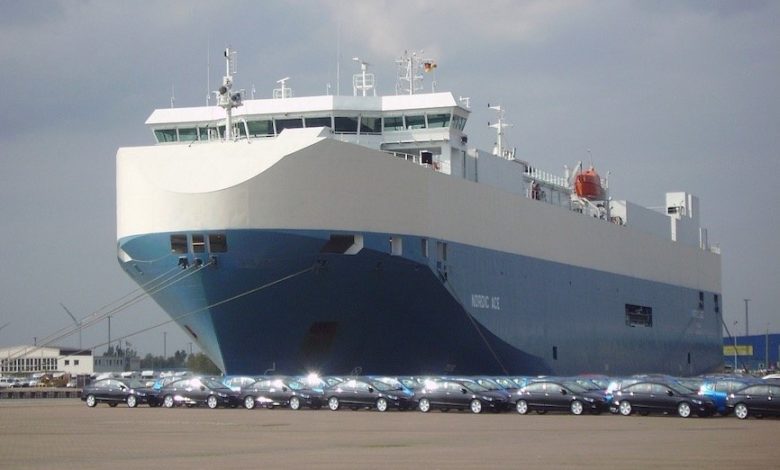Chip shortages send car carriers into reverse

Car carrier firms, having been hit very hard by the onset of the pandemic last year, are now facing up to renewed depressed volumes thanks to a global shortage of semiconductors.
At the onset of the pandemic the car carrier sector was one of the worst affected shipping segments, with huge swathes of the fleet sent into layup.
However, by May this year the volumes of cars being shipped had returned to 5% shy of pre-Covid-19 levels. Since then, however, many automakers have been forced to shutter production lines thanks to Covid outbreaks as well as a shortage of semiconductors. Semiconductors are vital for modern cars, running everything from safety to infotainment systems.
A lack of semi-conductors will be responsible for about 5m cars not being built in 2021
Latest data from Clarksons shows that for the period from January to July this year car trade volumes were around 9% short of pre-Covid levels in terms of tonne-miles, reflecting the impacts of semiconductor shortages on car production globally. The 9% figure is set to get worse in the coming months.
Analysts are projecting the lack of semi-conductors will be responsible for about 5m cars not being built in 2021.
Sweden’s Volvo, Germany’s Volkswagen and Japan’s Toyota all announced last week that they will have to reduce production further if there is not an urgent solution to the chip crisis. Toyota, the world’s biggest car company, is cutting 40% off from its September production by producing 140,000 fewer cars and trucks because of chip resources.
Semiconductor manufacturers like Taiwan Semiconductor Manufacturing Corporation (TSMC) and Intel are being forced to prioritise who should get chips first amid limited supply. These chipmakers naturally want to prioritise the most lucrative customers, like Apple and Samsung.
“Semiconductors might be the new oil—and that could make the 2020s the new 1970s,” American weekly magazine Barron’s reported last week, drawing comparisons between the world’s reliance on the Middle East for oil to today’s reliance on East Asia for chips. Around 80% of the world’s semiconductor production capacity is centred in the region,
In related news, Taiwanese media have recently reported TSMC, the largest chip maker in the world, is in advanced negotiations with a local container carrier, likely Wan Hai Lines, to ship 5,000 teu of equipment in October. The shipment is understood to be part of the fabrication equipment needed for a new chip plant TMSC plans to open in Arizona in 2024.
